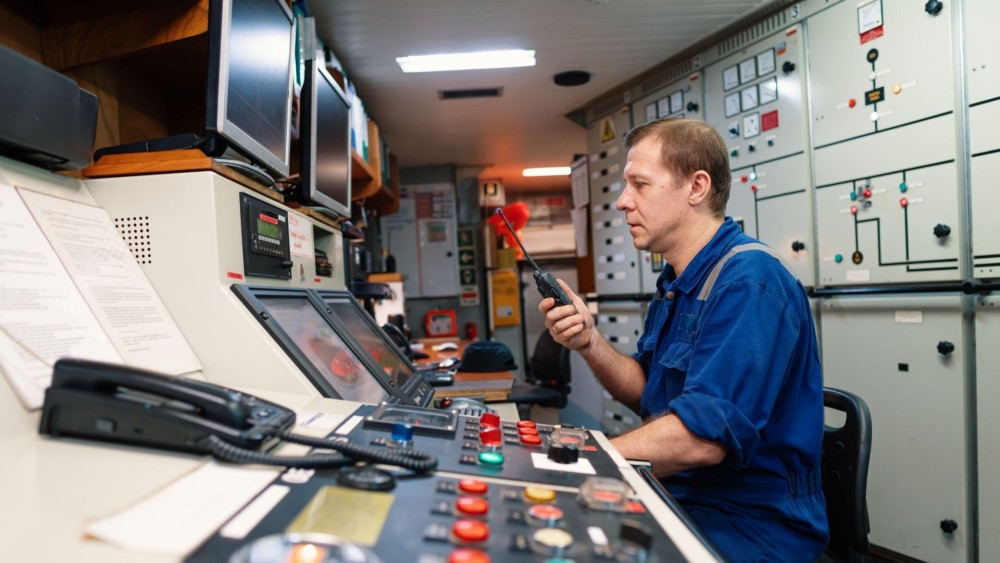Behaviors that drive down fleet’s performance: Opsealog experts share the main behaviors that drive down efficiency and marine offshore operations best practices to mitigate them.
Fleet performance
In uncertain times, in volatile markets impacts, it is of utmost importance for them to rethink how they operate and explore ways of remaining competitive. For businesses in the maritime and energy sectors, the fast-evolving economic and regulatory landscape is an incentive to think of ways to reduce costs and minimize their impact on the environment.
Companies managing ships across the globe have a significant challenge on their hands: monitoring their fleets to ensure high levels of efficiency and respect of schedules, as well as compliance with regulations and environmental requirements.
Operating in the shipping and offshore industries inherently involves a great deal of unpredictability, meaning that companies constantly have to adapt to deliver for their clients, even in more challenging times.
When logistics teams investigate improving operational efficiency, teams tend to overlook some particular behaviors , yet these could precisely impact your fleet’s performance. So here are our top 3 behaviors that probably drive down your fleet’s performance and how data can help you solve these problems.
MISUSE OF MAIN ENGINES AND GENERATORS
It seems obvious that crews should ensure adequate engine utilization depending on the type of operations, but in reality, this is not always happening. When faced with fast-changing schedules and urgent operations, captains and chief engineers must juggle between adjusting the engine configuration for a specific operation and the need to be prepared for subsequent requirements.
Clients’ demands, weather conditions, and the limited time given to crews to adjust the engine’s configuration all significantly influence the proper utilization of ships’ engines. To ensure the best possible outcome, companies must ensure that their teams understand and follow the appropriate engine utilization procedures. That there is adequate asset maintenance and that they operate according to the engine manufacturer’s instructions.
In a perfect world, captains would easily switch off engines and change configurations to respond to the slightest changes in weather or operational conditions. However, this is not the reality of our seafarers out there. Collecting and analyzing data is an excellent way to understand the behavior and the engine configuration utilization. Digitalization plays a vital role in understanding each vessel’s particular behaviors, including, of course, the utilization of their engines.
HAVING A FLEET THAT IS UNADAPTED TO YOUR NEEDS
This is challenging to measure because operational demands can vary throughout the year. Nonetheless, understanding the operational needs that your activities require can help you identify the most suitable assets to join your fleet.
Having too many or not enough vessels for your needs will pose a problem, as does having ships unadapted to your operations. This is why this is one of the behaviors that drive down the fleet’s performance. It is essential to choose the correct number of vessels and suitable designs, considering your operations, legislation, and other factors that may impact your activities, such as vessel flag, crew certificates, and specific vessel functions.
From there, how can we know what would be the perfect size for our fleet? How can we assess different vessel designs? The answer is data! By collecting and analyzing information from your operational demands and evaluating your needs in terms of maritime support, you will be able to understand the types of vessels you will need, and how long each contract should last. Having a comprehensive, data-based view of your operational needs also leads to more adapted contract conditions that will enable you to deliver your operations and ensure the vessels comply with your procedures, rules, and local legislation. In other words, it allows you to challenge ships on their performance.
OVERLOOKING OPERATIONAL STAND BY
Operational standby is one of the main operational behaviors that tend to drive down fleet productivity and efficiency. This is when a vessel is fully ready to operate with all engines running and all equipment ready for deployment but is forced to wait for a particular reason. The reasons include waiting for paperwork, a crane operator, a helicopter landing, etc. This behavior causes vessels unnecessarily burn up to 50% more fuel. A way to minimize this phenomenon is by collecting data from the vessel’s operations to understand the engine running hours and waiting time at each location. By analyzing this data, operators can find patterns that connect these standby periods to particular assets.
When multiple companies and suppliers interact in the same operational ecosystem, inefficiencies are expected due to the complexity of the activities and the large number of stakeholders involved. Collecting, centralizing, and sharing information amongst these stakeholders is essential to mitigate these inefficiencies. By analyzing your standby information, you can understand how your assets are utilized, and your planning is executed. Therefore, you can minimize operational standby with specific data analysis, change management, and procedure dispatch.
If you identify these behaviors in your fleet and would like to tackle them, contact our team to get a free demo of our Marinsights service.
Marinsights is a performance management solution that addresses the challenges of the maritime and offshore sectors. It uses data integration, business intelligence, and consulting services to deliver efficiency for logistics departments globally.

